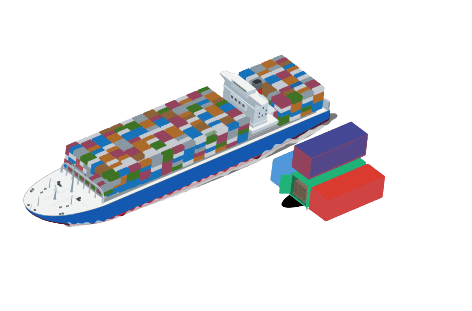The shipowner, whether an individual or a company, plays a fundamental role in maritime transport, both at the national and international levels. According to the Federal Revenue Service, the shipowner is the person or entity responsible for maritime transport by making the vessel available for use in transportation services. Their involvement is crucial within the logistics chain of Foreign Trade, as maritime transport accounts for the movement of over 90% of goods worldwide, according to data from the International Chamber of Shipping.
The shipowner’s role encompasses the execution of the entire operation and transportation of goods between ports, as well as operating ships and existing routes in international trade. They can either be the owner of the ship or have concessions to use ships and containers from third parties, both from their own country and other nations. To take advantage of tax benefits, many Brazilian shipowners choose to operate with international vessels.
Types of Shipowners
- Owners: Those who commercially exploit ships of their own.
- Managers: Operate ships owned by others.
- Charterers: Receive authorization to manage ships from other companies.
Understanding Maritime Agencies
Maritime agencies act as intermediaries between the client (importer/exporter) and the shipowner. They are responsible for loading cargo onto the ship, controlling all operations, and handling bureaucratic and financial matters related to maritime transport.
NVOCC (Non-Vessel Operating Common Carrier)
According to ANTAQ (National Agency of Waterway Transportation), an NVOCC is a maritime carrier that doesn’t own ships but consolidates various small cargo volumes into containers, thus unitizing them. The NVOCC controls a portion of the ship but doesn’t assume responsibility for its administration. It issues its own Bill of Lading (BL) and covers all costs related to transportation.
Shipowner vs. Freight Forwarder
The main difference between a shipowner and a freight forwarder is that the latter is responsible for making space reservations and negotiating freight rates with shipowners. The freight forwarder is one of the logistics operators in the Foreign Trade process, along with NVOCCs and shipowners, but their services aren’t obligatory.
World’s Largest Shipowners
According to Alphaliner, which compiles the TOP 100 global ranking of the largest international logistics operators, European companies are among the world’s largest shipowners. Currently, Danish company Maersk is considered the largest in the industry, with around 630 ships and over 33,000 employees. Maersk’s transport capacity is approximately 4,149,617 TEUs (Twenty-foot Equivalent Unit – a 20-foot container), representing about 16.9% of the world’s maritime cargo.
Shipowner Alliances
Shipowner alliances represent agreements for vessel sharing and strategic joint activities. They encompass nearly 80% of global container capacity. Currently, there are three major alliances:
- 2M Alliance (Maersk Line and Mediterranean Shipping Co. – MSC)
- Ocean Alliance (CMA CGM, Cosco, OOCL, and Evergreen)
- THE Alliance (Hapag-Lloyd, HMM, Yang Ming, and Ocean Network Express – ONE)
Conclusion
Shipowners play a vital role in international maritime transport and are essential for Foreign Trade efficiency. Their operations, combined with strategic alliances with other industry companies, provide greater agility and options for importing and exporting companies, making maritime transport a reliable and cost-effective option for goods movement worldwide.
About Cheap2Ship
Introducing Cheap2Ship, a technology company specialized in logistics and foreign trade. Through our advanced freight management and quotation platform, medium and large enterprises have experienced a significant increase in operational efficiency and a reduction in logistic costs.
Our commitment is to provide greater transparency in costs related to current freight providers, such as shipowners, freight forwarders, and carriers. This enables our clients to make more informed and strategic decisions for their businesses.
To learn more about our innovative solutions, visit our website and follow us on social media. There, you’ll find relevant content about foreign trade, logistics, and supply chain. We are ready to drive your company’s success in the global market. Join us and discover how we can make a difference for your business.

